Gay Gone Wild: Chris Kelly on Bringing ‘The Other Two’ to Life
Chris Kelly, co-creator of HBO Max's hit comedy 'The Other Two,' on how the series is achieving LGBTQ reality through surreal means.

“Oh, my God! My coffee’s here!”
Chris Kelly leaps up from the Zoom call and, still carrying the phone so that he’s visible in the frame, accepts a cup of coffee from an unseen person, whom he then thanks profusely.
“Oh, my God, thank you so much! Thank you!“
He then turns directly to the phone’s camera.
“Sorry for rudely accepting a coffee right now.”
Who could blame him? It’s 8:30 on a sunny April morning, and Kelly is here to talk about The Other Two, the show he executive produces with co-creator Sarah Schneider.
The pair met while serving as head writers for Saturday Night Live, and after departing after the 2016-2017 season, decided to forge a comedy series under the production umbrella of SNL‘s legendary creator Lorne Michaels.
The Other Two premiered on Comedy Central in 2019 and was a modest hit. It was renewed for a second season, and work had begun on it, but Comedy Central abruptly decided to drop it. HBO Max — smartly — picked the show up.
The second season of the comedy, which debuted in 2021 was more starkly funny than the first, and featured some big-name guest stars, including Noah Galvin in an unforgettable turn. Season three just launched, and with it, the series hits new comic heights. Kelly and Schneider reach into an arsenal of playful, punchy satire and produce episodes that swirl with giddy, often ridiculous surrealism. It’s a lampoon of life in the entertainment world, but one with a loving heart and a culture-puncturing dagger.
The core narrative surrounds the Dubek family. Cary (the magnificent Drew Tarver) and sister Brooke (the equally magnificent Heléne Yorke) are two millennials who, in season one, must come to terms with the massive overnight success of their 13-year-old brother, an internet sensation who goes by Chase Dreams (Case Walker).
Holding the family together is widower Pat Dubek (Molly Shannon, masterfully combining emotional fraught-ness with warm, matronly resolve) and a mini-torrent of managers, agents, and friends played by a sterling cast that includes Ken Marino, Wanda Sykes, Brandon Scott Jones, Fin Argus, and Josh Segarra.
The first season was subliminally rooted in grief and acceptance, as the family coped with the death of its patriarch, but in season two, the comedy bull was fully let out of the cage as the show’s narrative pivoted to make Pat the massively successful focal point, while Cary and Brooke still desperately floundered.
Season three is crazier yet, and, without spoiling anything, ventures into territory that leaves you both stunned and in uncontrollable fits of laughter.
Add to all this the fact that Cary starts season one as a closeted gay man and gradually embraces gay life — both the good and the bad — and you have one of the most fertile LGBTQ comedies on television. It should come as no surprise that co-creator Kelly is gay and draws from his own experience in telling Cary’s story.
Both Schneider and Kelly take big swings because, says the latter, they don’t like to repeat themselves. They take situations that have been done to death in previous sitcoms and reinvent them.
“What is the stupider version of the thing we’ve seen before?” says Kelly, explaining the show’s unofficial credo.
“Chris and Sarah are focusing on LGBTQ stories that have not been told,” says Molly Shannon during an interview a few days prior at the show’s press junket. “They want to do it in a different way that you haven’t seen before.
“I think it is so important for LGBTQ stories to be told,” she continues. “I wrote a memoir about my dad who was born in 1926, who was closeted and wasn’t able to come out till right before his death. He was born a generation or two too early. And I wish he had lived to see stories told where he could see himself represented on TV.”
“I think this show does a great job of not falling victim to doing what a lot of television shows do, which is if there’s more than one queer character, then they have to be together,” says Brandon Scott Jones, an openly gay actor who plays Cary’s best friend and confidanté, Curtis. “This is a show that allows complex, genuine relationships to also have sex involved, to also have relationships involved that are both antagonistic and supportive.
“In a world where [our enemies are] trying to tear us apart, I think people like to look at queer people as one type of thing, or to try to nail them down into one little box, when really it’s so multifaceted and there are so many layers. And I think it’s been really fun to get to play Curtis and play his relationship with Cary as something as meaningful as a romantic relationship, but in a friendship way. I think that is a really queer narrative, and I’ve been so grateful to get to put that on screen.”
Adds 20-year-old Case Walker, who plays the youngest Dubek, “He just loves Cary for who he is… and that stays consistent throughout the whole show. And I love being a part of that message. I love that the character Chase just doesn’t even think about it. He’s just like, ‘This is my brother and I love him, and that’s how we do things.’ You know what I mean? We’re people, that’s what we do: we love each other for who we are.”

[Editor’s Note: This interview occurred several weeks before the WGA strike.]
METRO WEEKLY: Let’s start with how you got to where you are in television.
CHRIS KELLY: I’m originally from Sacramento, California, and grew up there for most of my life. When I graduated high school, I moved to Southern California and went to the University of California Irvine. I always did theater and performing all throughout high school — that was always something I was interested in. I liked acting, but I also really liked writing, and my high school theater teacher allowed me to explore that by letting me write some of the plays. I was always bringing in SNL sketches that I had taped from the weekend before and forcing my classmates to perform them. So I just kind of always liked some combination of writing, performing, and comedy.
While I was in college, I really got into improv. I started taking classes at The Groundlings in Los Angeles on the weekends. When I graduated college, I moved to New York and kind of decided to try pursuing comedy full-time, whatever that meant. I didn’t know what it meant.
MW: Many comedians and actors I’ve talked to over the years cut their teeth in improv. How important do you think improv is to developing a comedic voice for an actor?
KELLY: It’s different for everybody. Not everybody comes in doing improv, but for myself, it really helped in my writing. A lot of times when Sarah Schneider, who’s the co-creator of The Other Two, and I write, we’ll improvise together in character. We’ll have a comedy idea, we’ll have a premise, and we’ll just improvise monologues or a conversation together in character.
So improv as a writer is a really helpful tool because it allows you just to kind of diarrhea a bunch of jokes and thoughts out onto the page without overthinking it, without editing yourself. And then you can go back and sift through it and see what’s valuable and what is nonsense, or what’s repetitive and what doesn’t work.
I would assume that actors who’ve come up doing improv, it really helps them as a performer, because it allows them to get out of their head when they’re performing. Improv, just in general, just really helps take away your fear because you are absolutely just making shit up, and if you fail, you fail, which is very helpful.
MW: I watched a Hulu documentary recently on the legendary Del Close. It was interesting because as much as improv could be funny for the audience, half the time, it just sort of failed and fizzled.
KELLY: Oh, yeah, not even half. Most of the time. There’s a lot of failing, a lot of looking stupid. For every really beautiful, wonderful, once-in-a-lifetime comedy routine, there are 10 stressful disasters.
I mean, I came up doing improv and I liked a lot of it, but if I’m being completely honest, at times I think it was a little too scary for me. I’m such a control freak and I’m such a perfectionist that it was very difficult for me to just be like, “Okay, your setting is the zoo and you’re monkeys.” And I’d be, like, “Pass, don’t want to do that one.” I think that is kind of how I pivoted to sketch-writing more. I had more control over the comedy.
MW: You spent six years at Saturday Night Live. What was it like to be part of that show’s history?
KELLY: It was incredible. I loved it. It was the absolute time of my life. It was definitely a pressure cooker, it was definitely hard — but it was good hard. I just really loved it. Something about that show and the way I work meshed. And even though it was a pressure cooker, and even though it was hard, I never lost sight of how cool it was. Even in my last year, I would go out onto the floor and listen to the music and truly still get teary-eyed and look around and be like, “I can’t believe I’m actually here.” This is very insane. I just felt lucky, truly, truly lucky every day I was there. It was a very cool experience.
MW: Would we recognize any iconic characters that were your creation specifically?
KELLY: I wrote a lot of stuff with Kate McKinnon. I wrote all her political stuff, so I wrote all Bernie Sanders and Hillary stuff. And Sarah, my co-head-writer, and I wrote all of the music videos with the female cast.
MW: How does it differ to go from Saturday Night Live to running your own show with The Other Two?
KELLY: It’s harder to run your own show. People think it’s going to be the opposite, but I think SNL was easier. But it’s very different, because SNL is hard and is a pressure cooker — but you work within an infrastructure. You work within a machine that’s existed forever. And as much as you have autonomy over your own sketches — and even when you’re a head writer and you’re, quote, unquote, “in charge,” you’re still not. You’re still under a boss, you’re under a power structure.
Yeah, but in the series, you are everything. You have to create that structure, you have to be building the plane as you fly it. The head writer at SNL has a lot of power, but you’re still not the producer and the creator and the person making all the decisions, and the financial decisions, and the hirings and the firings. And you’re not CC’d on every email and you’re not circling back on every single thing. When it’s your own show, you are doing that. So it’s a lot more at all times. You’re not just focused on the creativity of your three-minute sketch, you’re having to think about the entire ecosystem.
MW: How grateful, then, are you to have your co-showrunner, Sarah?
KELLY: Immensely. It’s such a huge job, so it definitely is nice to have another person to do it with.
MW: I first came upon The Other Two when it was on Comedy Central and just loved it. It was funny, original, warm. You pivoted when you went to HBO Max for season two, and it grew bolder, wilder. You started various types of gay jokes that I’d never seen a television sitcom attempt. It was great. It was empowering, it was funny, it was poking fun at us. Now, in season three, without giving too much away, you’ve kind of gone into a kind of surreal mode. Was this part of your plan from the start?
KELLY: It’s weird because you said that things got kind of wilder when we went to HBO Max, which is lovely and nice to hear, but also weirdly accidentally not technically what even happened. We wrote season two for Comedy Central. We assumed we would be on Comedy Central. We started filming it thinking we were going to be on Comedy Central. We were planning on making it as wild as season two was on Comedy Central. So luckily, when [Comedy Central canceled it and it] went to Max, it worked out.
I don’t know if this was our plan. Sarah and I don’t like to repeat ourselves, and Sarah and I don’t like to get bored, and Sarah and I sometimes get a little restless when we’re brainstorming an episode saying, “This is funny, but I feel like it’s something I’ve seen before,” or “This is funny, but I bet you there’s a weirder way to tell the same story.”
We often say that we like to tell a really grounded human story but in the most bonkers way possible. So hence the black and white episode, or the character of Brooke actually turning invisible at a party. We just really like that combination of telling grounded human stories where the characters are going through a real issue, exploring real anxiety or real fear or real frustration, but under the umbrella of something as stupid as we can get away with, if that makes sense.
In the writer’s room for season three, we really wanted to push ourselves. We oftentimes threw out ideas because we didn’t feel like they were bold enough. We want each episode to have its own thing. We were like, oh yeah, that’s the black and white episode. This episode’s at a big mansion party. This episode takes place during a big play. We like that each episode feels like its own little mini-thing.
MW: You’re really taking big swings this season. You take the show to a new comic level without undercutting its heart. You have an episode where you parody a Broadway play about AIDS. But it works so brilliantly — lovingly almost.
KELLY: That’s how we felt doing it. We only want to parody things that we love and that we know well enough to parody. That is something we care about. Especially when it comes to gay storylines or gay issues, we spend a lot of time in the room on that, and that is something I specifically care about. So yes, it was done with love — even though it’s rude.
MW: Your entire cast is so good together, every single one of them, and they’re going to absolute new levels within their interactions.
KELLY: I think Sarah and I feel like we can get away with these bigger swings because our cast is so good. We don’t want the show to just be insane for insane’s sake. We don’t want to just do shit for no reason. All of these things are in service of telling a grounded story, and we feel like we can, quote, unquote, take big swings because we know Heléne Yorke can ground it, because we know Drew Tarver is such a good actor he’ll make it seem real. Because you can, all of a sudden, have a party where people are invisible. Because Heléne is such a good actor and treats it real, you just accept it.
We have such a good cast from top to bottom that are such good comedians, and such good actors, that they make you believe it. They make you believe it. So I think it’s them that, hopefully if it works, they’re the ones who are making it work.

MW: I’ve noticed a trend in television, and it seems to be fairly recent, but there are shows like Schitt’s Creek and Heartstopper that do not seek to dismantle the LGBTQ community, but seek to celebrate it in their own ways. Your show certainly achieves that as well.
KELLY: I mean, all I can say is that’s very nice and very meaningful to hear. I know I feel very lucky because we don’t spend a lot of time in the room thinking about this on a macro level. We really want to create a show that feels honest and real and is kind of based on Sarah and mine’s own fears and anxieties or issues or relationship issues or hopes or dreams or insecurities. Because I’m gay, and because a lot of our writers’ room is gay, and because one of our main characters is gay, it just happens to involve a lot of LGBTQ storylines and issues. So we don’t really think about whether or not we’re uplifting the gay community. We just sort of write from a place that feels real and true and then hope to God that’s how it comes across.
I think it’s just important to have real storytelling, to feel like you’re not watching something that’s bullshit or that’s not fake or that’s not smoothed down, or that’s like “I hope straight people will understand this,” or that’s overly heartwarming. We never want to make our gay character overly precious because he’s the gay one, so we have to be more careful with him. Or he’s the gay one, so let’s make him nicer because he’s the gay one and we don’t want people to think gay people are mean. So we treat the characters and storylines like any other, writing them as truthfully, as brutally, as comedically as possible.
I think something we’ve cared about is not overly sanitizing Cary, not making him sweet, but showing him warts and all. We try not to make him too precious or make him too sweet or think about how he’s going to come across. We just write him as honestly as possible and hope people relate to it.
He goes through some pretty deep, dark places this season. I think it will be pretty hard to root for him later in the season, if I’m being perfectly honest. But I hope it comes from a place of truth and people will recognize it in themselves, hopefully. I mean, hopefully not, because he goes to some dark places. I really only ever think about it from a place of wanting to write something that feels real to me, and if it’s good or if it’s bad or if it’s ugly or if it’s embarrassing, so be it. Hopefully, it’s something that someone is like, I recognize a version of this. That’s my only goal.
MW: I think you succeed at that. Cary is not necessarily always a good guy, he’s in it for himself. And it’s interesting because you find ways to humiliate him in virtually every episode, to make fun of his narcissistic streak.
KELLY: You ain’t seen nothing yet, baby. We joked all season, we were like, “Should Cary die this season? Should he die?” Because he makes some bad decisions and we do humiliate him. He falls in his own diaper in a couple of episodes.
The first two seasons were him struggling with his sexuality, struggling to even have sex with somebody, just being obsessed with his straight roommate because his straight roommate wasn’t available to him. And so because he wasn’t available to him, Cary didn’t actually have to act out on any of his desires because he was too afraid to actually have sex.
And season two was about him being like, “Oh, I’m better now and I’m going to have a boyfriend,” and realizing that he was still kind of falling into the same traps of just being with one safe person, so he didn’t have to put himself out there in the community and take risks and chances and fuck and fail.

Season three, you kind of right away see that he’s finishing kind of a one-night stand and you understand, “Oh, he’s a little more comfortable in his sexuality. He’s having sex.”
And so we talked about this season as a way of, once he’s more comfortable in his sexuality, what are new parts of the gay experience that we can explore that he’s missing out on? It’s kind of hard to talk about without you having seen the back half of the season. But season three to me is based on something I have experienced, where acting and performing and becoming famous and successful is something he always wanted since he was a little kid. And he finally got everything he wanted, but why doesn’t it feel good? Why doesn’t it feel right? Why doesn’t it feel like what he imagined?
Later on in the season, we continue to explore, from a gay perspective, too, what he thought success was going to be and why he wanted that level of success in the first place. Why when we’re young and we’re closeted, we decide “I’m going to succeed, I’m going to win at all costs.” You’re kind of myopically focused on that. And that is sort of the root of what Cary’s going through this season. That was a wild long answer based on episodes no one has seen yet.
MW: How much of Cary is you?
KELLY: The good parts are me. The bad parts are Sarah. [Laughs.] Pretty close — I mean, a lot. Not any one thing he does is me, but they’re usually always based on some sort of insecurity or some fear or some past version of myself or something I’ve thought. Same thing with Brooke, honestly. Brooke is me, too, and Brooke is Sarah. We put all of our fears or worries or insecurities into them. All the characters start from some sort of truth that Sarah and I have. But Cary, I think, this season has a lot of my worst versions of myself.
MW: Let’s talk about casting authentically. How important is it to cast LGBTQ actors in LGBTQ roles?
KELLY: That’s something we really care about, in general. Mostly because I just don’t want to work with straight people. [Laughs.] No. That is important to us. And obviously, we know it’s not just like there’s gay and there’s straight. It’s not as simple as that. But I think it’s really important to me and to all of us on the show for queer characters to, hopefully, be portrayed by queer actors. So yeah, we really want that and I think it’s important.
MW: Do LGBTQ actors bring a different layer to it in your experience? Some people argue that an actor’s an actor and that’s the job — they should be able to play any role.
KELLY: I don’t know if I have a clear black-and-white answer on this. It’s more of, throughout history and throughout time and television and media, it is so common for straight people to play gay roles. And I don’t think it always has to be that way. It’s about time that more of them are portrayed by queer people. We always tell our casting directors, these are queer characters, we want queer people playing these roles.
MW: Provided that MAX keeps renewing it, how far do you think you can go with the show? Do you have a story arc in mind, or are you just making it up as you go along?
KELLY: Yeah, we don’t know if we’re going to do more seasons or not — or if we want to or not. We’re still focused on finishing season three. We kind of take every season at a time. I think this season we just wanted to tell a whole good complete story that felt fulfilling in and of its own — one that built on season two and season one, but could stand on its own and could be the last season if we chose to make it the last one.
But there are still so many places to take these characters, and in the entertainment industry, there are other jokes to be made. So it definitely feels like a refillable show where you could go as many seasons as you wanted. But we really care about the story first, so I think this could work as the last season. If we wanted to, we could go on. TBD. We don’t know. It’s weird because we’re doing press being like, “Hooray, we’ve done season three,” but we are still editing episode eight right now. So it feels very wild to talk about the future.
MW: My final question to you is personal to you. Are you happy?
KELLY: My, god. At 8:30 in the morning, am I happy?!
Am I happy? Yes. Yes…ish.
I’m at a real place in my life, where I am happy but I’m working on a work-life balance. I’m about to be 40 and trying to, quite frankly, figure out the proportion of work to not work in my life, and how large of a role I want to continue allowing work to be in my life versus family, community, having a dinner.
So I am happy, but I’m trying to figure out the way forward. Is that a very serious answer for this question? Yeah. But I’m happy and excited about what’s next — and what’s next might be a little bit of pivoting and chill time.
New episodes of The Other Two drop every Thursday on HBO Max through June 15. Visit www.hbomax.com.
Support Metro Weekly’s Journalism
These are challenging times for news organizations. And yet it’s crucial we stay active and provide vital resources and information to both our local readers and the world. So won’t you please take a moment and consider supporting Metro Weekly with a membership? For as little as $5 a month, you can help ensure Metro Weekly magazine and MetroWeekly.com remain free, viable resources as we provide the best, most diverse, culturally-resonant LGBTQ coverage in both the D.C. region and around the world. Memberships come with exclusive perks and discounts, your own personal digital delivery of each week’s magazine (and an archive), access to our Member's Lounge when it launches this fall, and exclusive members-only items like Metro Weekly Membership Mugs and Tote Bags! Check out all our membership levels here and please join us today!








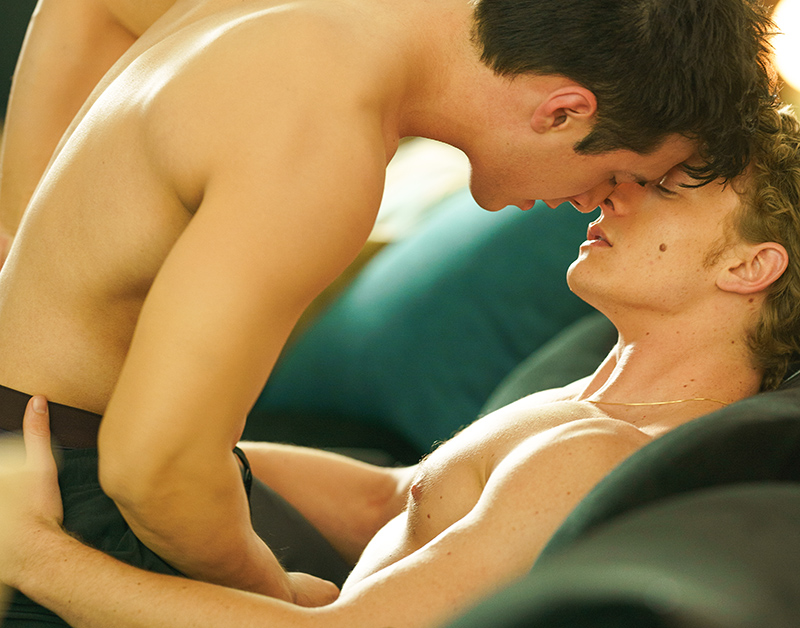
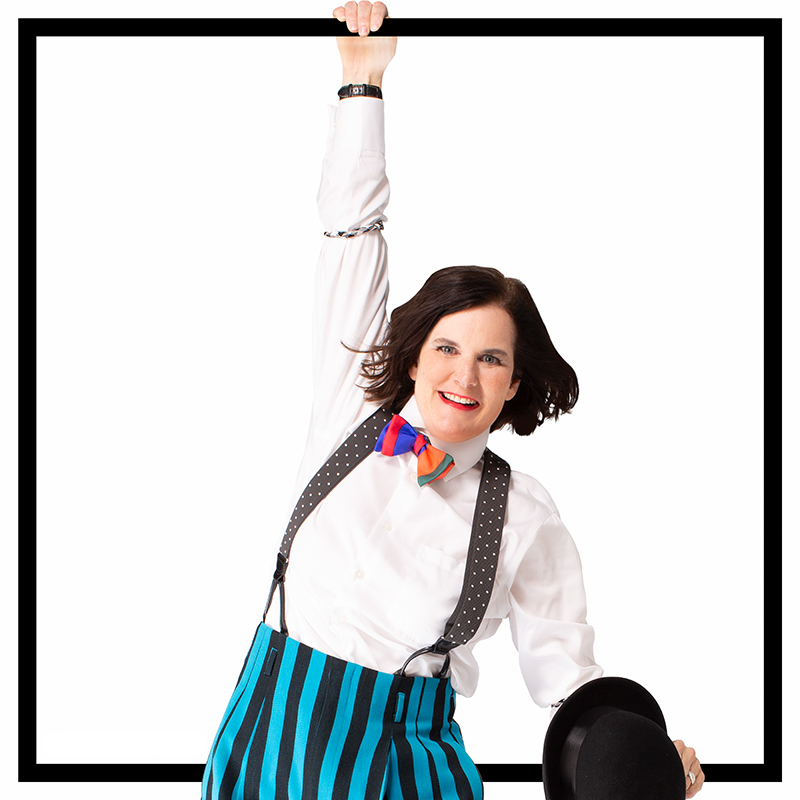
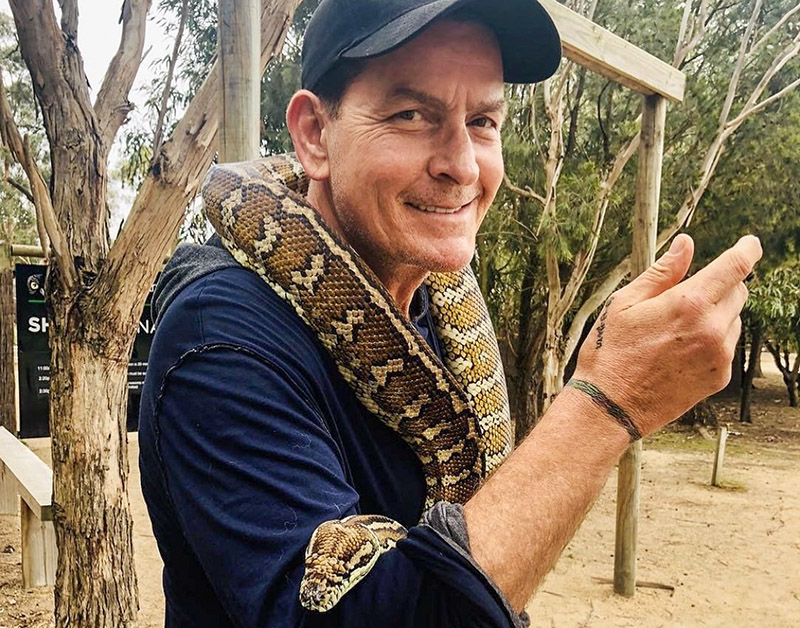













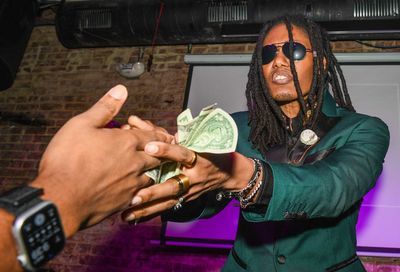
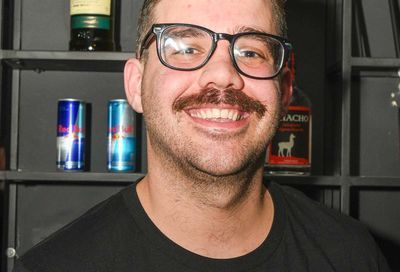
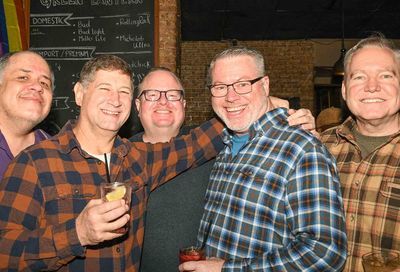
You must be logged in to post a comment.